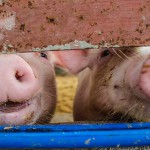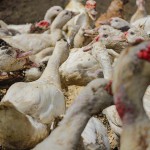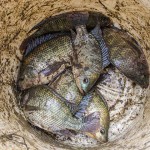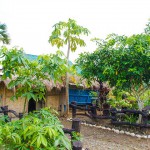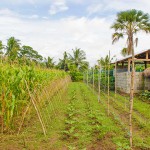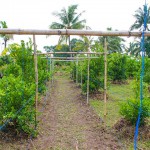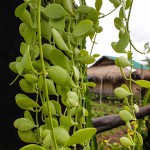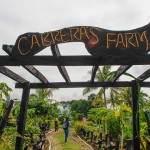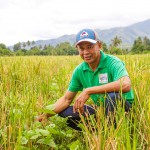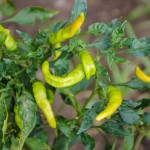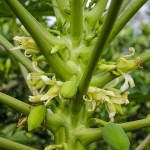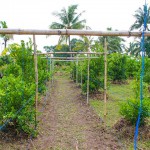After working in Taiwan for 9 years, Noel E. Cabrera decided to come back in Solano, Nueva Vizcaya in 2005, and start a new life as a farmer.
“I think it is still better to work in your own country, and till the soil of where you come from,” Cabrera said.
But the former factory worker knew he had to start from scratch.
“I noticed that I was lagging behind with the latest farming technologies. This encouraged me to attend different trainings and seminars offered by various agricultural agencies,” he said.
The ex-ofw turned farmer has a total farm area of 3.4 ha. Three hectares are devoted to rice production where he usually plants newly-released and high yielding inbred rice. The remaining area is planted with vegetables and fruit trees.
It wasn’t long before his co-farmers encouraged him to shift from inbred to hybrid rice.
“Since then, I have been planting hybrid during the dry season and inbred during the wet season. This has given me yields around 10 t/ha,” Cabrera shared.
He also constructed a fish pond for tilapia production which is also used by the Bureau of Fisheries and Aquatic Resources (BFAR) and the local government of Solano as a technology demonstration for ulang-tilapia culture.
As an advocate of organic farming, Cabrera uses rice straw for vermiculture to produce organic fertilizer for his rice, vegetables, and other crops.
“I think we should always find possible alternatives to realize the value of farm wastes and to practice environment-friendly technologies,” Cabrera encouraged.
To fully utilize his land, he grows vegetables and fruits such as eggplants, tomatoes, string beans, papaya and citrus. He also maintains backyard poultry for chicken, geese and ducks.
Cabrera attends various training programs, and farmer field days. He keeps himself up-to-date with the latest technologies by regularly reading information materials.
“It also helps that he always consults the Municipal Agriculture Office on technology updates which he could apply in his farm,” said Ramon P. Ramento, municipal agriculturist of Solano, Nueva Vizcaya.
“His determination and desire to apply his learning had resulted to a profitable farming enterprise where he devotes most of his time just to maximize the use of his land through the integration of other commodities under his rice-based farming system,” Ramento added.
“To be the best example that everyone can follow – that has to be the greatest contribution I can share to my fellow farmers,” Cabrera shared.
At present, Cabrera’s farm serves as a rice-based integrated farming system model in Solano that other farmers can replicate.
Cabrera is nominated as an outstanding rice farmer for the 2015 Gawad Saka Award of the Department of Agriculture.

